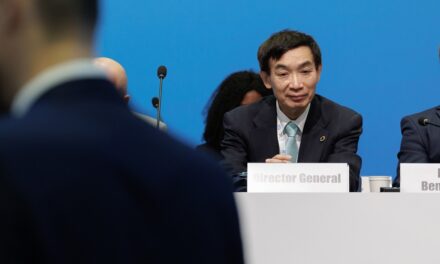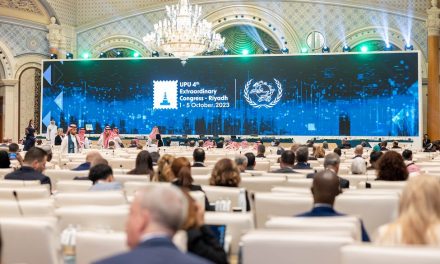
UPU to push for postal efficiency and connectivity
The Universal Postal Union and its 192 member countries have pledged to improve the efficiency of the global postal networks with better use of technology and standards. Ahead of today’s World Post Day, the UPU adopted a new four-year postal strategy this week laying out four main priorities and 18 work programmes to further the world postal system up to 2016.
In an era of declining mail volumes and rapid consumer and technological change, the UPU Congress in Doha agreed to drive efficiency and interconnectivity between the world’s postal administrations, to improve core letter and parcel services while diversifying the business.
As well as continuing the UPU’s role is sharing expertise between the world’s posts, the Doha Postal Strategy also set out priorities to help postal operators invest in three “dimensions” – physical delivery, financial services and digital/electronic communications.
Sustainable development – both in sustaining postal business models as well as pursuing environmental and social goals – was the fourth key priority of the new UPU strategy.
“Receiving messages differently”
While competition from the Internet threatens the traditional letter business, the flip side sees e-commerce propelling parcel volumes considerably around the world.
Along with the continuing need for economic development and the financial and social inclusion of populations around the world, the UPU strategy highlights many new areas of development for postal services.
Terry Dunn, who chairs the UPU strategy committee as well as being Canada Post’s general manager for international relations, said the rapid pace of change in the postal world requires a greater capacity to react and adjust “and do so quickly”.
He said the traditional universal service has to adapt to today’s technological environment as well as changing “market realities”.
“There is a fundamental transformation taking place in the postal business,” he said.
“This is having an impact on the physical side – people want to receive their messages differently, with the same assurances of trust and security they associate with the post.”
Inclusion
A ministerial conference held yesterday as part of the UPU’s Doha Congress saw 60 government ministers discussing the “vital” role the postal sector plays in today’s society.
Ministers including Russia’s Nikolay Nikiforov spoke of the need for postal operators to provide key services for people living in remote areas.
The need for posts to provide financial services to give more people access to credit was one of the key themes of the Congress. Letters still account for 48% of the $304bn (USD) global postal revenues according to the UPU, but in some countries financial services account for more than 50% of postal revenues.
Omobola Johnson, the Nigerian minister of communication technology, spoke of the importance of information communications technology in social inclusion, and the power of a formal address system.
One of the UPU’s ongoing projects is encouraging governments in countries that do not have full addressing systems to develop them in order to foster economic development and growth.
As many as 4bn people in the world do not have an address, often making it difficult to give them access to government and commercial services.
Johnson said: “An address means an identity. People who have an address… can be offered government services.”












